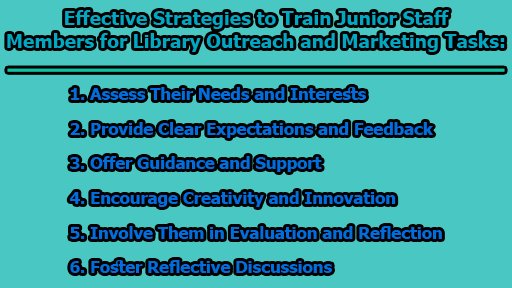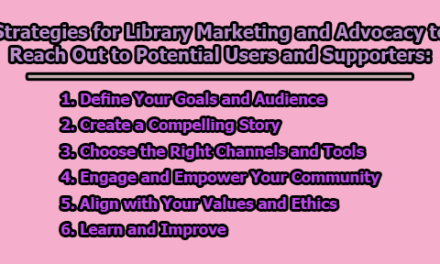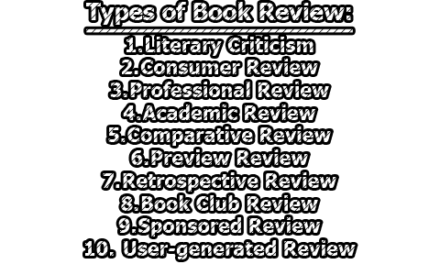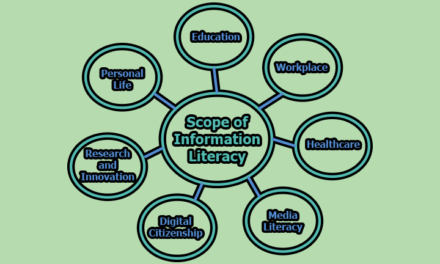Effective Strategies to Train Junior Staff Members for Library Outreach and Marketing Tasks:
Library outreach and marketing are essential components of promoting library services, resources, and programs to the community. These tasks can, however, be challenging for junior staff members who may lack the necessary skills, experience, or confidence. To empower your junior staff to excel in outreach and marketing, it’s crucial to implement a well-thought-out training program. In this article, we will explore effective strategies to train junior staff members for outreach and marketing tasks, enabling them to become successful library advocates.
1. Assess Their Needs and Interests: Before assigning outreach and marketing tasks, it’s essential to assess the current knowledge, skills, and interests of your junior staff. Employ various methods like surveys, interviews, self-evaluations, or observations to identify their strengths, weaknesses, goals, and preferences. This assessment will enable you to tailor training to their specific needs, ensuring that you address any gaps or challenges effectively.
2. Provide Clear Expectations and Feedback: Clear communication is vital when training junior staff members. They need to understand the purpose, objectives, and outcomes of each task, as well as the criteria, standards, and deadlines for performance evaluation. Regular and constructive feedback is essential to help them comprehend what is expected, how they are progressing, and where improvements are needed. This creates a transparent environment where they can learn and grow.
3. Offer Guidance and Support: Support is crucial during the training process. Provide your junior staff with the necessary resources, tools, and information to accomplish their tasks. This includes templates, examples, best practices, and data. Mentor and coach them, and encourage them to ask questions and seek advice from peers, colleagues, or external partners. This support boosts their confidence, competence, and independence.
4. Encourage Creativity and Innovation: Library outreach and marketing thrive on creativity and innovation. Encourage junior staff to express their ideas, opinions, and perspectives. Give them the freedom to experiment with different approaches, methods, or formats. Recognize and appreciate their efforts, contributions, and achievements while celebrating successes and learning from failures. This fosters their unique style, voice, and identity as library advocates.
5. Involve Them in Evaluation and Reflection: Incorporate junior staff into the evaluation and reflection process. Encourage them to assess their own performance and the impact of their tasks using various measures such as feedback, data, or testimonials. Facilitate reflection on their learning process, challenges, and achievements, as well as their future goals and plans. This promotes personal and professional growth.
6. Foster Reflective Discussions: Regular reflection is a powerful personal development tool. Encouraging your junior staff to engage in reflective discussions can be highly effective. Instead of simply telling them how to improve, coach them into making their own realizations about their performance and areas of growth. These non-judgmental discussions can be a valuable way to move forward and promote self-awareness.
In conclusion, training junior staff members for library outreach and marketing tasks is a rewarding endeavor that can significantly benefit your library. By assessing their needs and interests, providing clear expectations and feedback, offering guidance and support, encouraging creativity and innovation, involving them in evaluation and reflection, and fostering reflective discussions, you can empower your junior staff to become successful library advocates. As they develop their skills, knowledge, and attitudes, they will not only contribute to the library’s success but also grow personally and professionally, ultimately becoming invaluable assets to your institution.

Library Lecturer at Nurul Amin Degree College










